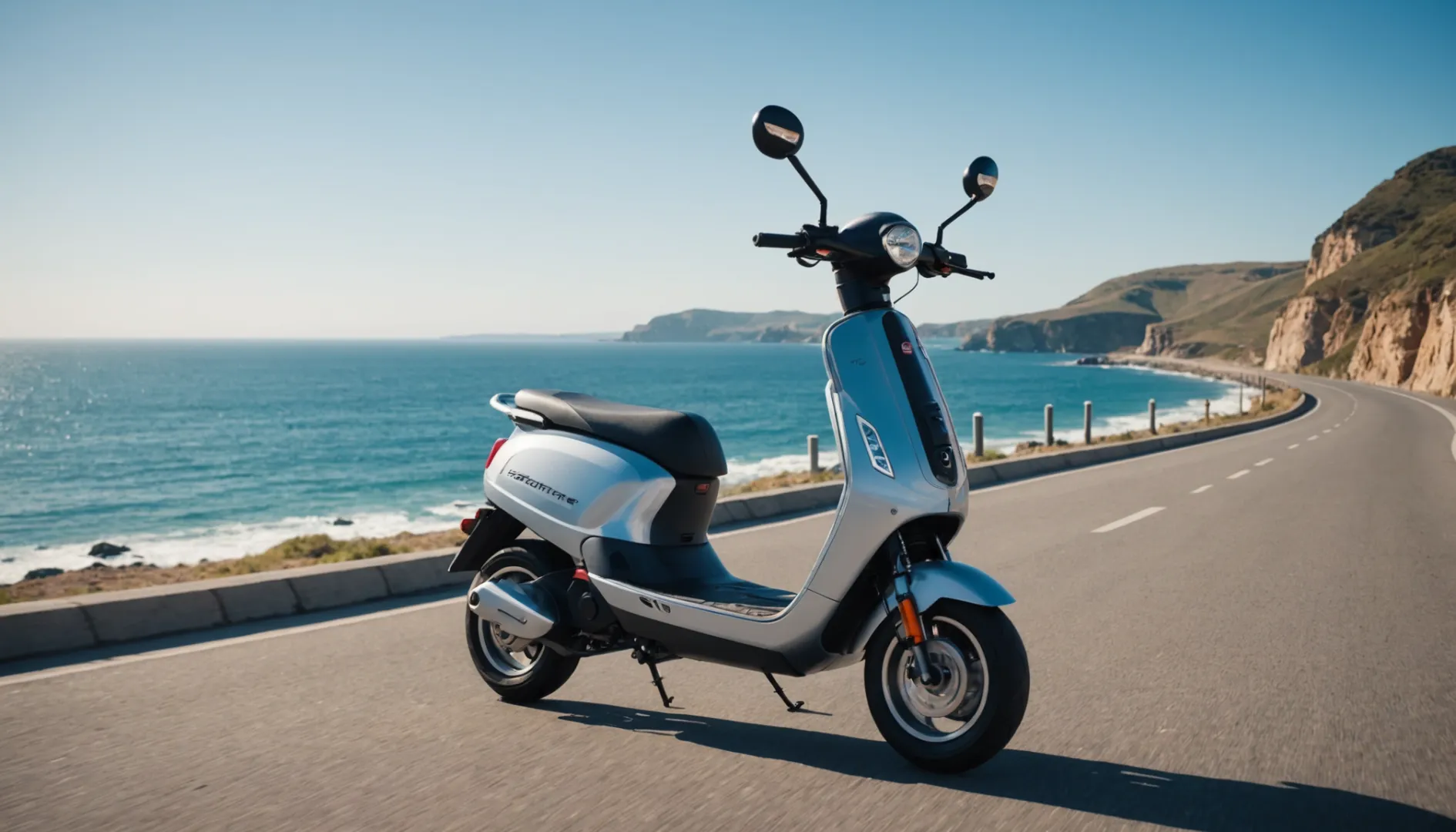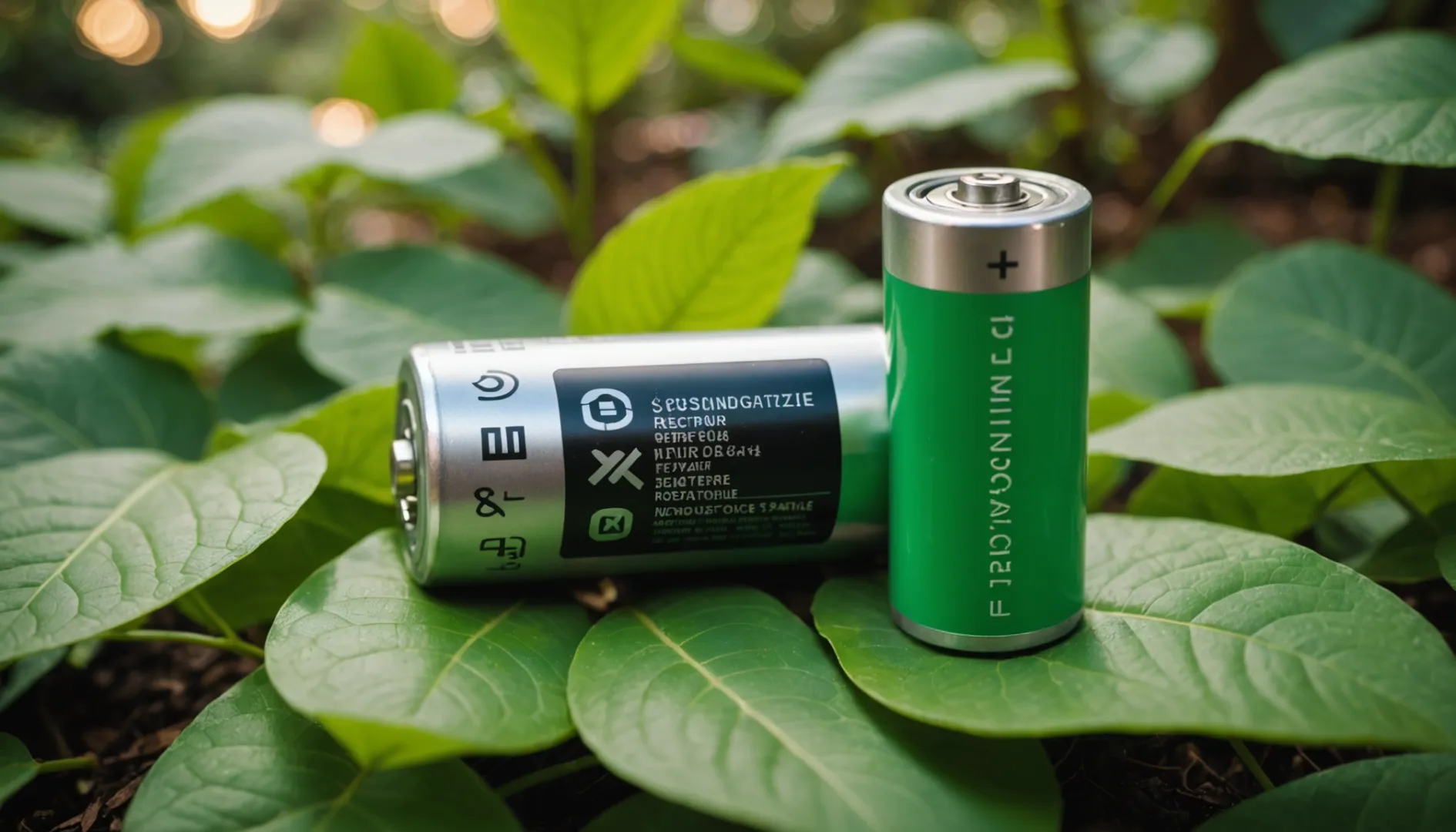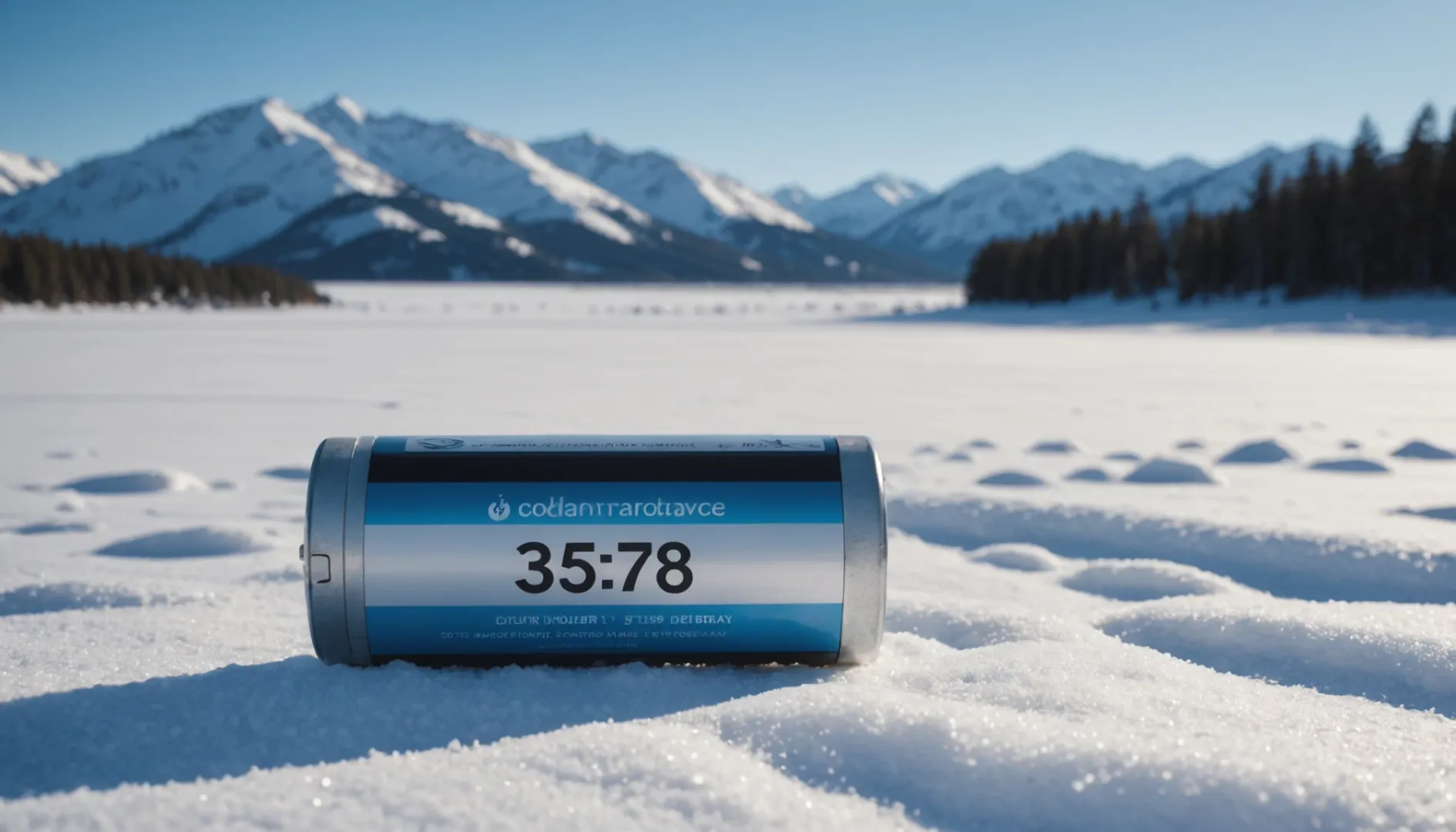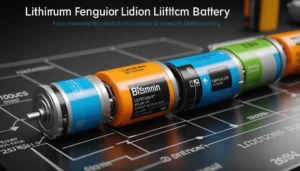Ever found yourself stranded with a dead scooter battery? Lithium batteries could be your saving grace.
Lithium batteries are game-changers for motor scooters with their higher energy density, longer lifespan, faster charging, and low maintenance needs. These qualities make them a smarter choice over lead-acid batteries, enhancing both performance and efficiency on the road.
I remember the time my scooter's battery died just when I was about to head out for a crucial meeting. Frustrating, right? That's when I started looking into lithium batteries. While they might seem pricey at first, the long-term savings and peace of mind they offer make them worth every penny. In this post, let's explore these advantages in detail and see why switching to lithium could be the best decision for your scooter.
Lithium batteries charge faster than lead-acid batteries.True
Lithium batteries reach 90% charge in 2 hours, lead-acid in 8-9 hours.
Lead-acid batteries are lighter than lithium batteries.False
Lithium batteries are significantly lighter, enhancing scooter performance.
How Do Lithium Batteries Enhance Scooter Performance?
Have you ever wondered why your electric scooter feels zippier and more reliable with a lithium battery?
Lithium batteries boost scooter performance by offering high energy density, extended lifespan, rapid charging, lightweight design, and steady power output.
Higher Energy Density
You know those days when you're cruising along and just want to keep going? Lithium batteries make that possible with their remarkable energy capacity1. I remember the first time I took my scooter for a long ride without having to worry about recharging every few miles. It was like a whole new world opened up, allowing for spontaneous detours and longer adventures.
Longer Lifespan and Cycle Life
I used to dread the thought of my battery giving up on me after just a few years. But with lithium batteries, those worries are mostly gone. They can last 7 to 10 years, far outliving the old lead-acid types. This means fewer replacements and more savings in the long run—truly a win-win!
Faster Charging
Time is precious, right? I can't tell you how many times I've been grateful for my scooter's rapid charging feature. Imagine plugging it in while you grab lunch and coming back to find it almost fully charged. That's the kind of convenience lithium batteries bring to the table, cutting down waiting times drastically.
Low Maintenance
Gone are the days of tedious battery checks and water top-ups. I love how hassle-free my lithium battery is. It's like having one less chore on my to-do list, freeing me up for more important things.
Lighter Weight and Improved Handling
The first time I lifted my scooter after switching to a lithium battery, I was amazed at how light it felt. The reduction in weight really helps with acceleration and makes tackling hills less of a chore. It's all about that smooth, effortless ride that feels more like gliding than driving.
Consistent Power Output
One of the most reassuring aspects is the steady power output. Even on longer rides or hilly terrains, I know my scooter will perform consistently from start to finish. This reliability makes every journey more enjoyable and stress-free.
Better Cold Weather Performance
I live in a place where the weather can get pretty cold, so it's reassuring to know that lithium batteries don't get sluggish in low temperatures. It means I can count on my scooter throughout the year without any hiccups.
Environmental Benefits
Being environmentally conscious, I appreciate that lithium batteries are non-toxic and recyclable. It's good to know that while I'm enjoying all these benefits, I'm also making a greener choice.
Lithium batteries last twice as long as lead-acid batteries.True
Lithium batteries last 7-10 years, while lead-acid lasts 4-5 years.
Lead-acid batteries charge faster than lithium batteries.False
Lithium batteries charge to 90% in 2 hours, lead-acid takes 8-9 hours.
What is the Lifespan Difference Between Lithium and Lead-Acid Batteries?
Ever wondered why some batteries seem to last forever while others just fizzle out?
Lithium batteries usually outlast lead-acid ones, offering 7-10 years of life and 2,000 to 5,000 charge cycles, compared to 4-5 years and 500-1,000 cycles for lead-acid batteries.
%[Comparison of lithium and lead-acid batteries with an electric scooter in the background.]
Understanding Battery Lifespan
I remember the time when my trusty old car's battery gave up on me in the middle of nowhere. It was a lead-acid battery, barely four years old, and it just decided it had had enough. That's when I started delving into the world of batteries, and what I found was fascinating. Lithium batteries are like the marathon runners of the battery world. They just keep going and going, usually lasting between 7 to 10 years. Their secret? It's all about their chemistry and impressive cycle life2, which allows for 2,000 to 5,000 charge cycles.
Factors Influencing Longevity
Think of lithium batteries as that friend who thrives on routine—they love consistency. They're more forgiving with deep discharges and maintain their capacity over time. My experience with lead-acid batteries is that they’re like those plants you have to water every day; they tend to degrade faster if you don't treat them right.
Maintenance and Care Requirements
I used to dread the regular checks and top-ups that lead-acid batteries demanded. It felt like another chore on my endless list of things to do. Thankfully, lithium batteries don’t need any of that fuss. Minimal maintenance means fewer headaches and a longer effective lifespan, which is perfect for someone like me who tends to forget these things.
Environmental Impact and Efficiency
The energy efficiency3 of lithium batteries also deserves a shout-out. They pack more power in a lighter package with a higher energy density and lower self-discharge rate. This means they perform better over time, and I don't have to replace them as often—saving both money and the planet.
Cost Implications Over Time
It's true, lithium batteries might make your wallet wince at first, but their extended lifespan and low maintenance requirements really do pay off in the long run. I've learned to look beyond the initial sticker shock and consider the total cost of ownership because, in the end, it's about more than just the price tag—it's about peace of mind.
Lithium batteries charge faster than lead-acid.True
Lithium batteries reach 90% capacity in 2 hours, unlike lead-acid.
Lead-acid batteries are lighter than lithium batteries.False
Lithium batteries are significantly lighter, enhancing scooter handling.
Why Are Lithium Batteries More Environmentally Friendly?
Remember the first time you heard about lithium batteries and their eco-friendly buzz? It's not just hype; there's a solid reason behind it.
Lithium batteries are eco-friendly due to their energy efficiency, long lifespan, and low maintenance. Unlike lead-acid batteries, they lack toxic materials and are recyclable, reducing environmental risks. Their efficient energy use supports renewable systems, offering a cleaner, sustainable alternative.
The Role of Lithium in Energy Efficiency
Lithium batteries possess a high energy density, which means they can store more energy in a smaller space compared to traditional lead-acid batteries4. This efficiency not only reduces the size and weight of devices they power but also leads to less energy waste during use. For example, electric vehicles (EVs) benefit from lithium batteries by achieving longer ranges with fewer resources.
I still remember the first time I picked up a device powered by a lithium battery. It was noticeably lighter, and I was amazed at how long it lasted. This was a game-changer for my electric scooter rides, allowing me to travel farther without worrying about running out of juice.
Longevity and Sustainability
One of the key environmental benefits of lithium batteries is their longer lifespan. These batteries can last between 7-10 years with up to 5,000 charge cycles, significantly outlasting the typical lifespan of lead-acid batteries. This means fewer batteries end up in landfills, reducing the strain on waste management systems and minimizing the environmental impact5 of battery disposal.
It's like having a loyal friend who sticks around longer than expected. I can't count the number of times I've been grateful for this feature, knowing I'm contributing to less environmental strain.
Minimal Maintenance and Recycling Potential
Lithium batteries require virtually no maintenance compared to their counterparts. This not only saves time and resources but also reduces the potential for hazardous chemical exposure during battery upkeep. Moreover, lithium batteries can be recycled, allowing for the recovery of valuable materials and decreasing the need for raw material extraction.
Imagine all the time you save by not having to check water levels or clean terminals! Plus, understanding the recycling process can empower consumers to make more sustainable choices. It makes me feel good knowing that when it's finally time to say goodbye to my battery, its valuable materials can be recovered and reused, promoting sustainability.
Supporting Renewable Energy Systems
The efficiency and reliability of lithium batteries make them a perfect match for renewable energy solutions like solar and wind power. They store energy generated by these systems, ensuring a consistent power supply even when production is low. This helps decrease reliance on fossil fuels, contributing positively to the fight against climate change and supporting a more sustainable energy infrastructure6.
The seamless integration of lithium batteries with renewable energy solutions is perhaps what excites me most. It's empowering to know that by using lithium-powered devices, I'm helping reduce fossil fuel dependency and playing a part in combating climate change.
Acknowledging lithium's contribution to minimizing environmental impact is crucial as we strive for technological advancements that harmonize with ecological preservation. While there are challenges, lithium batteries undoubtedly lead us toward a sustainable energy future.
Lithium batteries are fully recyclable.True
Lithium batteries contain no toxic materials and are recyclable, reducing waste.
Lead-acid batteries outperform lithium in cold weather.False
Lithium batteries perform better in cold weather than lead-acid batteries.
How Does Cold Weather Affect Lithium Battery Performance?
Ever wondered why your phone dies faster in winter? It's not just you—lithium batteries really struggle in the cold!
Cold weather affects lithium battery performance by reducing their capacity and increasing internal resistance, leading to shorter run times and slower charging.
Impact on Battery Capacity
I remember last winter when I was hiking up a snowy trail. My phone, which was usually my trusty guide, suddenly ran out of juice way before it should have. It turns out, in cold temperatures, lithium batteries slow down on the inside, making them less capable of delivering power. Imagine trying to run a marathon in thick snow boots—that's what batteries feel like in the cold. The capacity can drop by up to 20% when it gets chilly, which means devices might not last as long as you'd expect. Interestingly, battery capacity7 can drop significantly when temperatures dip below freezing.
Increased Internal Resistance
Another memory that sticks out is trying to start my electric scooter on a particularly frosty morning. It was sluggish, and I could almost feel the battery's resistance as it tried to power up. In cold weather, this resistance goes up, making it tougher for the battery to deliver energy smoothly. It's like trying to drive through molasses! While this does generate a bit of heat that can warm the battery slightly, it generally leads to poorer performance and efficiency.
Slow Charging Rates
I learned the hard way that charging lithium batteries in the cold is no small feat. My usual quick charge routine turned into an endless waiting game. That's because cold temperatures slow down the chemical reactions and increase resistance, making charging much slower. A word of caution: charging a freezing cold battery might even damage it or reduce its lifespan. So now I always try to warm my batteries to room temperature before plugging them in for optimal results. For more info on safe charging practices8, there are great resources available.
Effects on Electric Vehicles
Driving my electric car in winter opened my eyes to how much cold weather can affect performance. The reduced driving range and longer charging times were hard to ignore during winter months. Thankfully, some EV manufacturers are incorporating battery heating systems to help improve EV performance9 when it's cold out.
Best Practices for Battery Maintenance
Over the years, I've picked up a few tricks for keeping lithium batteries healthy when it's freezing. Storing them in environments that aren't too cold and letting them warm up before use or charging makes a big difference. Insulated covers are a lifesaver for outdoor batteries used in colder settings. Additionally, it's always a good idea to check out the manufacturer's guidelines for battery maintenance10 during the winter months.
Lithium batteries outperform lead-acid in cold weather.True
Lithium batteries maintain better performance and efficiency in cold temperatures.
Lead-acid batteries charge faster than lithium batteries.False
Lithium batteries charge much faster, reaching 90% in about 2 hours.
TOWO Power Is a leader for lithium battery product solution company from China
Conclusion
Lithium batteries enhance motor scooters with higher energy density, longer lifespan, faster charging, low maintenance, and environmental benefits, making them superior to traditional lead-acid batteries.
-
Discover how energy capacity affects scooter battery performance. ↩
-
Understand how cycle life affects battery longevity. ↩
-
Discover the efficiency benefits of lithium over lead-acid. ↩
-
Discover how lithium's high energy density benefits device performance. ↩
-
Learn how battery longevity reduces environmental waste issues. ↩
-
Explore how lithium supports sustainable renewable energy solutions. ↩
-
Understand how cold temperatures impact lithium battery capacity. ↩
-
Learn how to safely charge lithium batteries in winter. ↩
-
Explore how EVs manage battery efficiency in winter. ↩
-
Discover ways to maintain lithium battery health during winter. ↩









